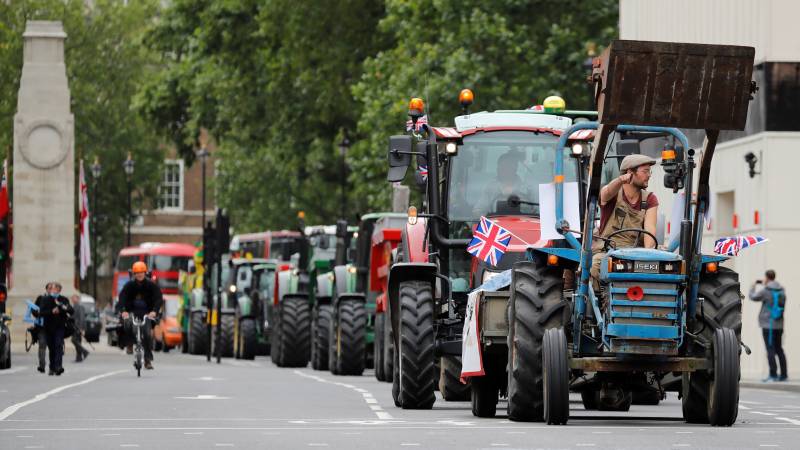Britain unveils fresh £30bn package to stimulate economy

Stay tuned with 24 News HD Android App

The UK government on Wednesday unveiled a package worth £30 billion ($37 billion, 33 billion euros) to save jobs, help the young into work and kickstart the British economy ravaged by the coronavirus pandemic.
Delivering a mini-budget to parliament, finance minister Rishi Sunak's announced measures including bonuses to companies retaining staff and taking on apprentices, investment in 'green' jobs and even allowing the whole country to enjoy discounted meals in restaurants. "People need to know that although hardship lies ahead, no-one will be left without hope," said Chancellor of the Exchequer Sunak.
Noting that "people are anxious about losing their jobs, about unemployment rising", Sunak said: "We're not just going to accept this." But he insisted that the government's furlough scheme already in operation to protect millions of private-sector jobs had to end in October.
Other measures announced by Sunak include a temporary cut to value added tax on food, accommodation and attractions -- and a higher threshold for stamp duty on home purchases to help the construction sector.
'25% contraction'
Britain has suffered Europe's deadliest outbreak of COVID-19 and a nationwide shutdown led to the worst economic downturn among the G7 leading industrialised states. Sunak said the UK economy had contracted by 25 percent over the coronavirus lockdown -- "the same amount it grew in the previous 18 years".
The chancellor also confirmed £3-billion of green investment, after British Prime Minister Boris Johnson vowed to "build, build, build" out of the economic crisis. The investment package includes £2 billion in grants for households to insulate homes and make them more energy efficient, and £1 billion for public sector buildings, including hospitals.
The plan is part also of Britain's long-term pledge to reduce carbon emissions to net zero by 2050 to tackle climate change. Britain imposed a nationwide lockdown on March 23 to halt the spread of COVID-19 but has gradually begun easing restrictions to help ailing businesses, including pubs and hair salons.
Recent official data show the UK's biggest quarterly contraction for more than 40 years -- at minus 2.2 percent -- in the January-March period. However, the data included only the first full week of the lockdown -- and Sunak suggested Wednesday that the second quarter was far worse.
Since the crisis began, the Bank of England has pumped cash stimulus worth £300 billion into Britain's economy and slashed its main interest rate to a record-low 0.1 percent -- moves aimed at propping up businesses and saving jobs.
Experts estimate the total cost of government emergency measures could also run as high as £300 billion. The government's fresh jobs retention plans unveiled Wednesday meanwhile build on its furlough scheme, under which the state is paying up to 80 percent of salaries for some nine million workers.
Sunak on Wednesday said the furlough scheme "cannot and should not go on forever", telling MPs: "I know that when furlough ends it will be a difficult moment... But the truth is, calling for endless extensions to the furlough is just as irresponsible as it would have been, back in June, to end the scheme overnight. "We have to be honest," he said.
